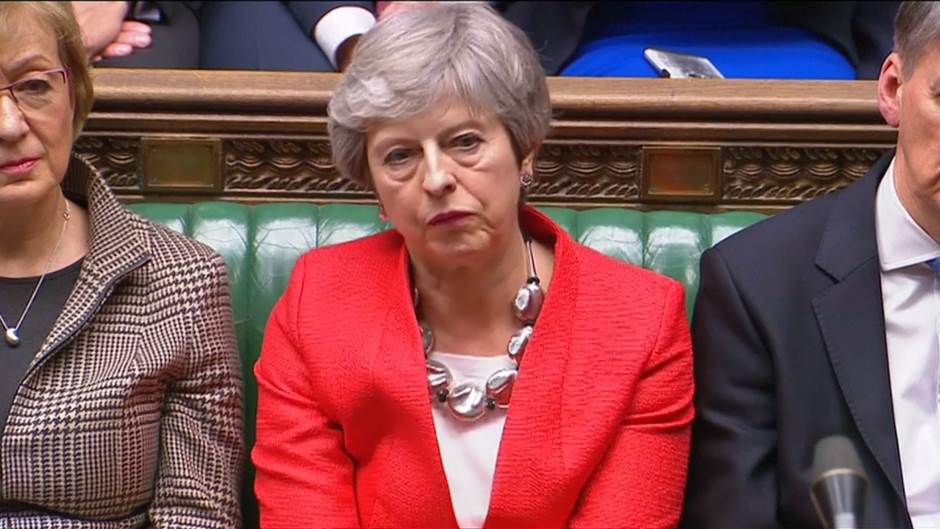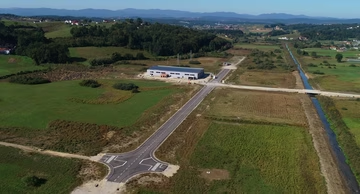
British Prime Minister Theresa May has formally requested a delay to the country's departure from the European Union, on another day of drama and confusion over her government's Brexit plan.
After promising on scores of occasions that Brexit would take place on March 29, May finally bowed to the inevitable and asked the EU to extend the divorce process.
May told the House of Commons she had written to European Council President Donald Tusk, adding that she was "not prepared to delay Brexit any further" than June 30.
Tusk said in Brussels later that a short extension "should be possible," but on one condition -- that the UK Parliament passes May's Brexit deal.
Just last week the Prime Minister warned the House of Commons that a longer extension would be needed if lawmakers failed to vote in favour of her Brexit deal. Downing Street hoped that the prospect of a long delay would force rebel lawmakers into line.
But Brexiteer members of her Cabinet were reportedly furious at the suggestion May could ask the EU for a delay of up to two years. There was a mutinous mood at a Cabinet meeting on Wednesday, according to multiple reports.
By Wednesday morning, May had backed down. "The PM won't be asking for a long extension," a Downing Street source told CNN.
"There is a case for giving Parliament a bit more time to agree a way forward, but the people of this country have been waiting nearly three years now. "They are fed up with parliament's failure to take a decision and the PM shares their frustration."
The Prime Minister told the House of Commons later that she intends to bring her twice-rejected deal back for the third vote. "If that vote is passed, the extension will give the House time to consider the Withdrawal Agreement bill. If not, the House will have to decide how to proceed," May told parliament.
Jeremy Corbyn, leader of the UK's main opposition Labour Party, said May has led the country into a "full-scale national crisis."
"Incompetence, failure and intransigence from the Prime Minister have brought us to this point," he told MPs.
He added he would be holding his own meetings with UK lawmakers on Wednesday and leaders in Brussels on Thursday in order to "break the deadlock."
The process could further be complicated after the Speaker of the House of Commons, John Bercow, granted an emergency debate -- being held on Wednesday afternoon -- over whether a longer extension to Brexit should be requested by May instead.
During Prime Minister's Questions on Wednesday, MPs pointed out that May's de facto deputy, Cabinet Office Minister David Lidington warned against a short extension to Brexit only last week. A brief, one-off extension "would be downright reckless," he said last week, adding that it would increase the chances of no-deal scenario.
Amid the chaos, May will meet EU leaders in Brussels on Thursday where she will discuss her request to extend Article 50 -- the legal process for Britain leaving the bloc.
If an extension is agreed by EU leaders, the UK will avoid crashing out of the EU without a deal.
However European Commission President Jean-Claude Juncker had "formally warned" May against delaying Brexit beyond May 23, spokesman Margaritis Schinas said.
The UK appears to think that, since the new session of the European Parliament doesn't begin until July 1, it can remain in the EU until June 30 without holding elections. An internal European Commission briefing document, seen by CNN, states that the UK must leave by May 23 to avoid holding elections.
Tusk acknowledged that May's proposed end date June 30 "creates a series of questions of a legal and political nature" that would have to be debated, he said.
Juncker also reiterated that the EU would not enter any more negotiations with the British Prime Minister. "We are not in a state of war with the UK, but a state of negotiation [and] the negotiations are finished," he said, according to PA.
Kakvo je tvoje mišljenje o ovome?
Učestvuj u diskusiji ili pročitaj komentare





 Srbija
Srbija
 Hrvatska
Hrvatska
 Slovenija
Slovenija



























































